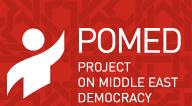Elizabeth Rubin writes in the New York Times on the Mujahedeen e-Khalq (MEK) and their controversial claims as Iran’s main opposition group. According to Rubin, Secretary of State 
Trita Parsi and Dokhi Fassihian list steps in an article published in Tehran Bureau that the U.S., international community and MEK can take to resolve the situation at Camp Ashraf. Parsi and Fassihian recommend that Camp Ashraf should be dismantled from the supervision of the United Nations, the International Red Cross and the U.S. military. Additionally, the rights of the MEK members should be upheld. Residents should also “be offered resettlement in third countries and reunification with their families if they meet the requirement of the United Nations to renounce violence.” Most importantly, Parsi and Fassihian emphasize that the National Council for Iranian Resistance (NCRI)- MEK as a whole, should renounce violence in an official proclamation published in Farsi and English before being considered for FTO delisting.[..]
Project on middle East Democracy

